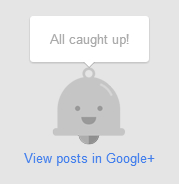How Community Software Can Use Forensic Science to Identify Bad Members
When you hear the term “forensic evidence,” you think about police work and court cases. You think about DNA, blood and finger prints. You don’t think about online communities.
But our communities are home to a great deal of digital DNA and trace information. This evidence can be used to identify people who are trying to abuse or take advantage of our communities. Yet I don’t know of any software options that are making use of the data in this way.
There are certain key areas where this could be very helpful, where it could take a task best performed by machines and let a machine perform it.
I am sure that there are many ways this would be done, but I’ll give you one good example. Members who hold multiple accounts to push an agenda, agree with themselves or promote something. How could the software help, you might ask? Well, what if you received a notification in your admin area whenever any of these things happened:
Read More




 I’m not as down on the deeper Google+ and YouTube integration as a lot of YouTubers. I think it brings some interesting things, some of which can be beneficial to content creators and for community building.
I’m not as down on the deeper Google+ and YouTube integration as a lot of YouTubers. I think it brings some interesting things, some of which can be beneficial to content creators and for community building. I used to host an online show called
I used to host an online show called 


 I really enjoyed
I really enjoyed 